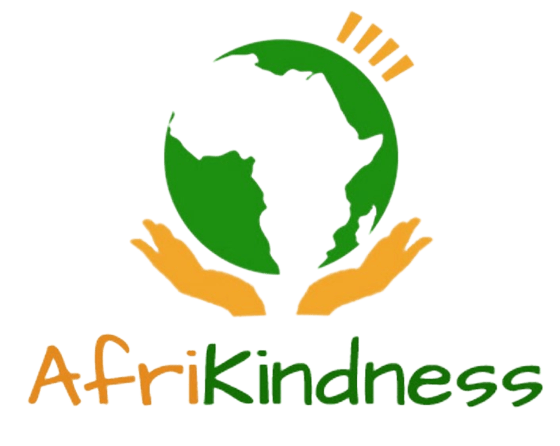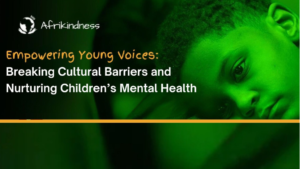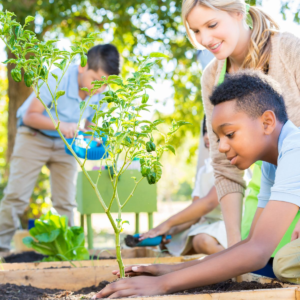World Kindness Day 2022
World kindness day is an international holiday, to highlight good deeds in the community focusing on the common thread of kindness, which binds us as a community. The purpose of the day is to help make kindness the norm in homes, schools, and workplaces. It is celebrated in many countries such as the United States, Canada, Nigeria, Australia, and the U.A.E and it is observed internationally on the 13th of November. It was first introduced in 1998 by the World Kindness Movement, a coalition of nations kindness NGOs.
So, why does kindness matter?
We believe that the spread of kindness will, in our opinion, effectively battle the core causes of identity crises, bullying, mental health crises, and abuse in schools, in our society, and around the world. Kindness is one of the 24 universal character strengths within the virtue category of humanity. The importance of kindness cannot be over-emphasized in children. It builds empathy, and social and emotional skills and makes children more resilient. It is an essential core value that creates a positive and supportive environment for all.
Research shows that acts of kindness are linked to increased feelings of well-being.
According to Ripple Kindness Project, Bullying (and cyberbullying) may be on the rise due to a child’s lack of empathy, learned behaviour, or emotional inadequacies. The long-term effect greatly increases if the bullying continues over a long period of time.
”The negative social, physical, and mental health effects of childhood bullying are still evident nearly 40 years later, according to a 2015 research by King’s College London”.
Kindness isn’t talked about enough in schools, but Bullying is…..
Bullying is a sensitive topic, which is often talked about in schools. Teachers educate students on what bullying is, and when to speak up and make a change. There are anti-bullying days dedicated to schools to create awareness and policies in place. But a policy, alone, is simply not enough.
Are schools really doing enough to stop bullying in schools?
Well, No!
Recent surveys continue to show high rates of bullying in schools and the severe psychological impact on those victimized. Society is also very reactive. Bullying comes in different forms: – Cyberbullying, Physical bullying, Verbal bullying, Prejudical bullying, and Social bullying. They all have the same impact on one person – the victim. Children who are bullied can experience negative social, emotional, and mental issues that impact their learning in school and lead to isolation. At its worst, bullying has driven young people to self-harm and even suicide.
And not just that!
Children who bully others can also develop irrational behaviors, and engage in violent activities and crimes while children who witness bullying are more likely to have increased mental health problems including depression. In all cases, it is a SERIOUS problem.
Children and young people bullied often feel very uncomfortable talking about it. Most times, our actions and inactions as parents, guardians, or teachers could make the situation worse for the child.
While we cannot fully control what challenges our children will face at some point in their lives, as parents/guardians, we can positively influence how they respond, and what they do and also provide that enabling environment for them to learn the right social and interpersonal skills to help them thrive. It is often difficult for parents, teachers, or guardians to identify if someone is being bullied. In most instances, the signs are there, especially with mood and behavioral changes. Typical bullying signs include outbursts of anger, irrational behavior, isolating & looking lost in class, withdrawal – making excuses to stay at home, and acting strange, especially during school time.
Build their social and emotional skills
It is time for schools, parents, and society to introduce long-term plans to tackle bullying, such as equipping students with the right social and emotional skills. Parents play a key role here as the first role model for the child. The social and emotional framework (SEL) is one of the approaches that will enable children to acquire and apply knowledge, skills, and the right attitudes to develop healthy identities, feel and show empathy, nurture their self-esteem, maintain great relationships, and build resilience. The focus is on building confident well-rounded children.
Emotion-coaching is the key to raising happy, resilient, and well-adjusted children as they tend to experience positive feelings and build positive relationships according to John Gottman, author of Raising an Emotionally Intelligent Child.
Foster a kind and positive environment in schools and at home
But most importantly, it is time for schools to educate students on being kind, which is an essential core value that creates a positive and supportive environment for all. Research has shown that schools with a positive climate foster healthy development for children, as a child’s surroundings can impact their behaviour. An important aspect of this is adults modelling the right prosocial behavior that can encourage kindness in schools. Also, a key factor to a kind school environment is establishing the right interactions and support for children who are perpetrators of bullying.
So, how can we prevent bullying through kindness?
This is one of the most effective ways to prevent bullying – compassionate thinking and acts of kindness. Being kind is different from being nice. Young people are growing up in a world that is turbulent, less tolerant, and less compassionate. Being mean, making jest at others in a derogatory way, and calling hurtful names are becoming the norm and most times, considered socially acceptable. Such behaviours are very common in schools, however, there is a small percentage of students who are kind and go out of their way to show kindness, and empathy to other students. Kindness can/should be learned and taught in schools.
Mindful kindness is key and should be taught in schools and at home. It is more than an awareness campaign or one-day PHSE class but requires a continuous reinforcement of this core value and practice. It is one that requires intentional action to fully realize its potential and benefits.
Kindness cannot be developed in children through contemplation and discussion. The best way to develop kindness is to receive it and practice it. ACT it. Do it.
It is important to teach children that there is nothing wrong with being kind. Being kind can make someone’s day. It brings a sense of belonging to a community. Being kind in a school environment sets an example for others, it shows other students how to approach and communicate with each other.
Let’s focus on Cyberbullying for a minute, shall we?
Cyberbullying is serious and can increase self-isolation and loneliness in children. It can have damaging effects on children such as depression, low self-confidence, and social anxiety. According to certain studies, children who suffer cyberbullying may have a twofold increased risk of suicidal thoughts. Receiving intentionally hurtful messages, spreading rumours or lies about someone, sending images or videos to embarrass and humiliate someone, and sending online threats to intimidate someone are all forms of cyberbullying.
What are the actions that can be taken to put a stop to cyberbullying?
- Educate yourself as parents on cyberbullying and ways to address it. It is hard for you to protect your child if you do not have an idea or understand the problem. You need to be in the know and be familiar with all their social media platforms and apps.
- Remind your child to ignore messages from people that they do not know and report them as soon as possible to an adult. This obviously requires trust. The child trusts the adult to support and advise and not blame, shrug off, or threaten. Most times, the latter is always the case, and this action forces the child to be secretive.
- Make them regularly aware of cyberbullying, its impact, and that it is OK to ask for help. Do not be an accomplice. Keep the lines of communication open with the child.
As parents and guardians, our ultimate goal is to have kind, well-rounded children that will thrive and make a great impact in society. Let’s make time to provide the needed support to our children by listening and engaging regularly. If your child is being cyberbullied regularly, it is a crime and must be reported to local authorities.
For schools, adopt and implement a zero-tolerance policy for all types of bullying, have an anti-bullying policy in place, and create regular awareness and discussion about bullying prevention – for children, parents, and school authorities. But DON’T STOP THERE!
Most importantly, KINDNESS – promotes acts of kindness in children and young people and encourages a culture of kindness in schools.
What will you do to make kindness visible today?
#worldkindnessday #kindnessmatters #kindnessisfree
#beaninspiration #makekindnessthenorm #afrikindness #bekind




